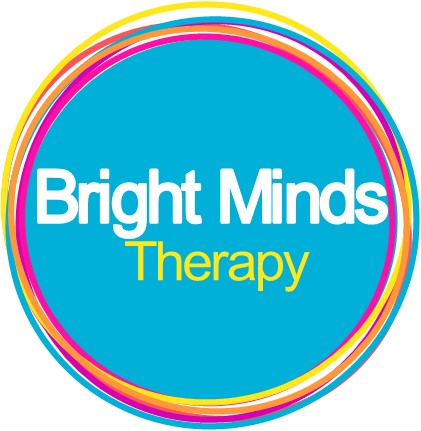Occupational Therapy
Occupational Therapist are trained health professionals who assist people to engage, participate and increase their performance in their everyday tasks.
The therapists at Bright Minds Therapy assess your child skills in order to determine the areas impacting their engagement, participation and performance in their occupations.
Foundational Skills – gross motor, fine motor and visual skills
Foundational skill are all of the individual areas of development that are required in order to perform successfully in our everyday tasks; and include:
Primitive reflex integration
Balance
Postural Strength
Body awareness
Motor planning,
Crossing the midline
Bilateral integration of the body
Visual Perceptual Skills
Visual Pursuits
Concept Development
Hand Strength
In hand Manipulation
Finger Isolation
Grasp development
Fine motor control
An occupational therapist will assesses all skills individually in order to gain an understanding of the child’s strengths and weaknesses; and identify the areas of development affecting the child’s participation and performance.
Emotional and Behavioural Development
The ability to regulate emotions effectively can be dependent on:
Sensory processing difficulties
Foundational skill development
Emotional Intelligence
Exposure to behavioural management techniques and strategies
Neurological development
Trauma
An occupational therapist can assist parents and teachers with supporting behavioural and emotional regualtion of a child by:
Providing assessment and analysis of underlying reasons for behaviours
Providing sensory strategies to help a child to better regulate their sensory system
Assisting parents and teachers to grade and modify tasks to match the child’s skill set.
Building self-awareness skills with targeted therapy activities
Parent education regarding child’s difficulties and appropriate strategies
Social Skills
The ability to understand and follow social rules, and engage and interact appropriately with peers is dependent on many skills including:
Attention regulation – ability to sustain attention throughout play activity.
Communication – receptive and expressive language development
Understanding body language and facial expression
Play Skills
Sensory and emotional regualtion – to respond appropriately to our environment and others.
Executive functioning – higher order reasoning
Ideation, Planning and Sequencing – in order to think of and carry out play sequences
Foundational skills – if there is a mismatch between skills and social game/activity
An occupational therapist can help a child to develop their social skills by:
Developing individual skills as mentioned above
Practicing social skills in therapy environment
Practicing social skills in context ie at school, in small groups
Building self awareness and regualtion skills to support appropriate socialisation
Referring to speech pathologist for language development if appropriate
Functional Skills – reading, writing and self-care
Functional Skills are the everyday tasks that children are expected to do; including:
Reading
Writing
Scissor Skills
Following Directions
Dressing
Eating
Toileting
Play Skills
An Occupational Therapist can observe and assess a child’s functional skills in order to gain a better understanding of the child’s difficulties in context within the task and environment it is conducted.
Sensory Development
Sensory Processing is the ability to process sensory information from the outside world and within our bodies, through our sensory systems:
Visual
Auditory
Tactile
Oral/Gustatory
Proprioception (perception of push, pull, impact through muscles and joints)
Vestibular (movement)
An Occupational Therapist can conduct standardised and observational assessment in order to gain an understanding of a child’s sensory system, and how it is affecting their engagement and participation in daily tasks, and help to implement strategies to help the child to better regulate their sensory system.
Children with Sensory Processing difficulties often have difficulties with:
Regulating and maintaining attention
Following directions
Behaving appropriately
Transitioning between tasks and environments
Settling to sleep
Eating - Picky eaters
Engaging with others appropriately
Social skills
Self care tasks – brushing teeth, nail clipping, hair brushing/styling.
Make a booking
Click the button below to make a booking or to request more information about Bright Minds Therapy for your child or school.






